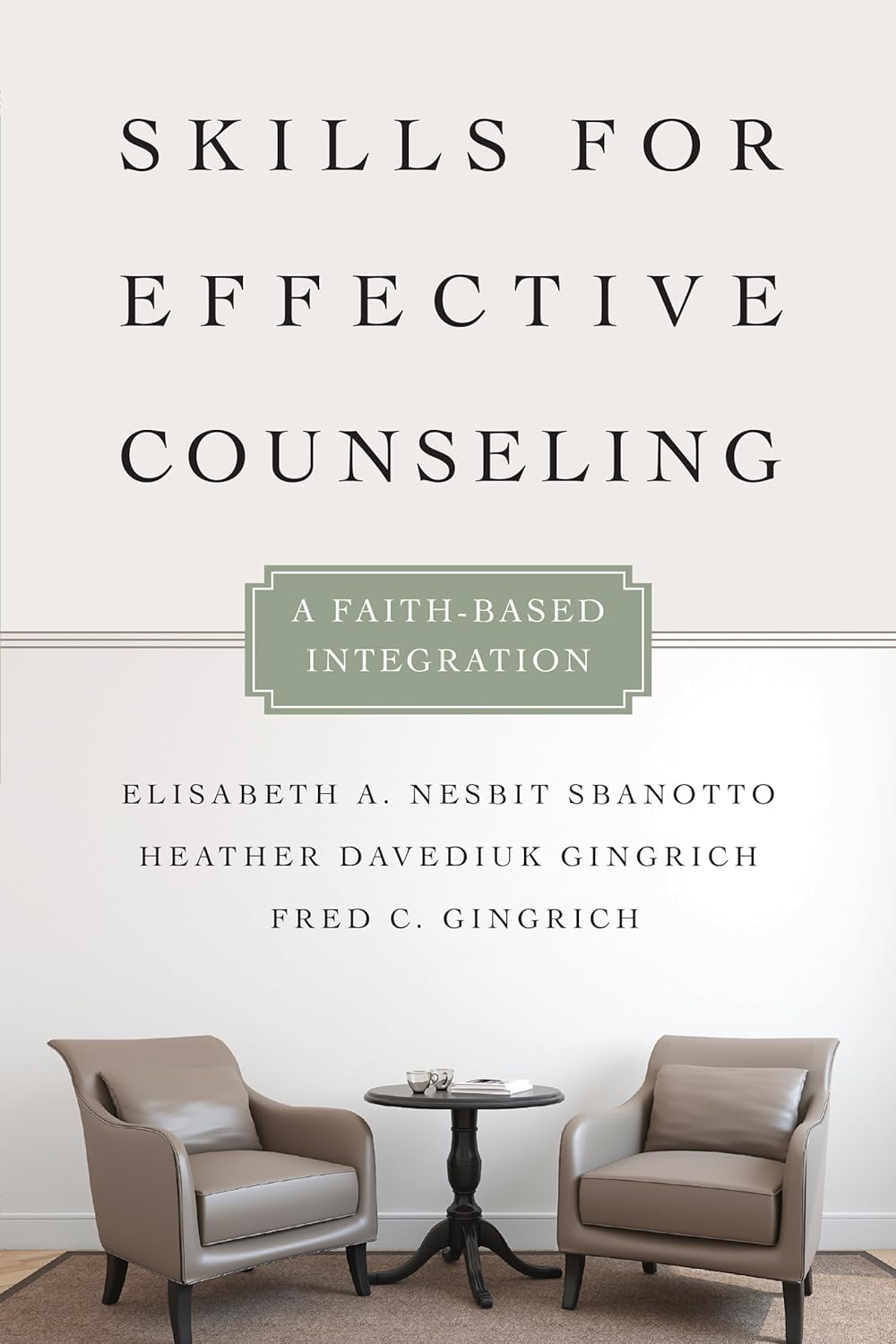“Skills for Effective Counseling: A Faith-Based Integration” by Elisabeth A. Nesbit Sbanotto, Heather Davediuk Gingrich, and Fred C. Gingrich provides a comprehensive guide for counselors seeking to incorporate faith into their practice. The book covers foundational counseling skills, spiritual assessment techniques, and the integration of faith-based interventions. Ethical considerations, cultural sensitivity, and self-care for counselors are also discussed. Through case studies and examples, counselors learn how to apply faith-based integration in counseling sessions, fostering holistic healing for clients. The book emphasizes a client-centered approach and encourages ongoing professional development in faith-based counseling practices.
Here’s a detailed 10-point summary:
- Introduction to Faith-Based Counseling:
- The book introduces the concept of integrating faith into counseling, emphasizing the importance of addressing spiritual needs alongside psychological ones.
- Foundational Counseling Skills:
- It covers essential counseling skills such as active listening, empathy, and rapport-building, which form the backbone of effective counseling practice.
- Spiritual Assessment Techniques:
- Counselors learn how to conduct spiritual assessments to understand clients’ religious beliefs, practices, and values, enabling them to tailor their approach accordingly.
- Integration of Faith-Based Interventions:
- Practical strategies for incorporating faith-based interventions into counseling sessions are provided, including prayer, scripture reading, and meditation.
- Ethical Considerations in Faith-Based Counseling:
- The book explores ethical considerations specific to faith-based counseling, such as respecting clients’ religious beliefs and avoiding imposing personal beliefs on clients.
- Cultural Sensitivity and Diversity:
- Counselors are encouraged to be culturally sensitive and understand the diverse religious backgrounds of their clients to provide effective and respectful care.
- Case Studies and Examples:
- Real-life case studies and examples illustrate how faith-based integration can be applied in counseling practice, offering practical insights and solutions.
- Client-Centered Approach:
- A client-centered approach is emphasized, focusing on meeting the individual needs and preferences of each client while integrating faith-based principles.
- Self-Care for Counselors:
- The book addresses the importance of self-care for counselors, providing strategies to manage stress, prevent burnout, and maintain spiritual well-being.
- Continued Professional Development:
- Counselors are encouraged to pursue ongoing professional development in faith-based counseling, including attending workshops, seeking supervision, and staying updated with current research.

In summary, “Skills for Effective Counseling: A Faith-Based Integration” equips counselors with the knowledge, skills, and ethical framework necessary to integrate faith into their counseling practice effectively. Through a blend of counseling fundamentals and faith-based principles, counselors can provide holistic and culturally sensitive care that addresses the spiritual, psychological, and emotional needs of their clients.


